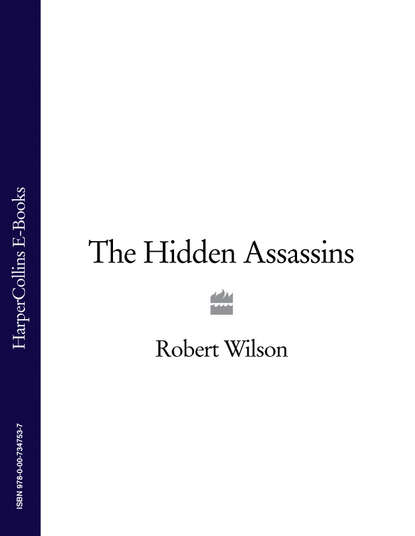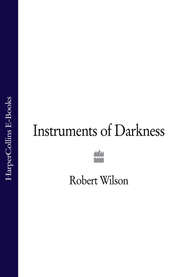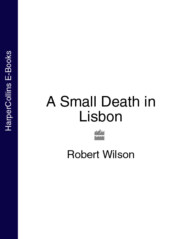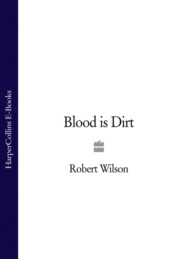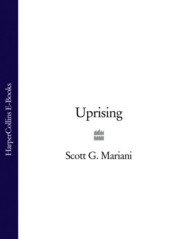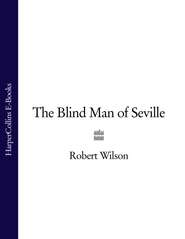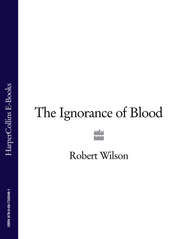По всем вопросам обращайтесь на: info@litportal.ru
(©) 2003-2024.
✖
The Hidden Assassins
Автор
Год написания книги
2018
Настройки чтения
Размер шрифта
Высота строк
Поля
‘But, as you say, there seems to be an unending stream of young operatives who you don’t know about and who can be organized at a distance to perform terrorist acts,’ said Calderón. ‘That, surely, is the problem?’
‘As you’ve seen from the investigations into the London bombings, there is extraordinary co-operation between all the secret services,’ said Juan. ‘Our proximity to North Africa makes us vulnerable but gives us opportunities as well. In the two years since the Madrid train bombings we have achieved considerable penetration into Morocco, Algeria and Tunisia. We hope to improve our ability to pick up sleeping cells by intercepting the signals that might eventually activate them. We are not perfect, but neither are they. You don’t hear about our successes, and it’s too early to say whether we are dealing here with one of our failures.’
‘You said that “in this scenario the Imam is complicit”,’ said Falcón. ‘Does this mean you are looking at other scenarios?’
‘All we can do is prepare ourselves for eventualities,’ said Juan. ‘In the last two years we have been examining a domestic phenomenon, which first came to light on the internet. I hesitate to call this phenomenon a group, because we have found no evidence of organization, or communication, for that matter. What we have found are newsletter pages on a website called www.vomit.org. This was thought to be an American site because it first appeared in the English language, but the CIA and MI5 have just recently told us they now believe VOMIT stands for Victimas del Odio de Musulmanos, Islamistas y Terroristas.’
‘What’s the content of the newsletter?’
‘It’s an updated list of all terrorist attacks carried out by Islamic extremists since the early 1990s. It gives a short account of the attack, the number of victims, both dead and injured, followed by the number of people directly affected by the death or injury of a person close to them.’
‘Does that mean they are contacting the victims’ families?’ asked Elvira.
‘If they are, the victims seem to be unaware of it,’ said Juan. ‘Victims get approached by the media, the government, the social services, the police…and, as yet, we haven’t found anyone who has been able to tell us that they’ve been contacted by VOMIT.’
‘Did this start in 2004 after the Madrid bombings?’ said Elvira.
‘The British first came across the pages in June 2004. By September 2004 it also included Muslim on Muslim attacks, such as suicide bombings against police recruiting offices in Iraq, and since the beginning of 2005 there has also been a section on Muslim women who have been the victims of honour killings or gang rapes. In these cases, they only report on the type of attack and number of victims.’
‘Presumably the posting of these pages on the web is completely anonymous,’ said Calderón, who didn’t wait for an answer. ‘There must have been a Muslim reaction to this, surely?’
‘The Al Jazeera news channel did a piece on these web pages back in August 2004 and there was a huge internet response in which various Arab-sponsored websites enumerated Arab victims of Israeli, American, European, Russian, Far Eastern and Australian aggression. Some of them were extreme and went back in history to the Crusades, the expulsion of the Moors from Spain and the defeat of the Ottoman empire. None of the websites came up with as powerful a banner as VOMIT, and a lot of them couldn’t resist spouting an agenda, so although they were read avidly in the Arab world, they didn’t penetrate the West at all.’
‘So what makes you think that VOMIT has gone from being a passive, unorganized internet phenomenon into an active, operational entity?’ asked Falcón.
‘We don’t,’ said Juan. ‘We review their web pages daily to see if there’s any incitement to violence, disrespect shown to Islam, or attempts at recruitment to some kind of cause, but there’s nothing except the clocking up of attacks and their victims.’
‘Have you spoken to victims of the Madrid bombings?’ asked Falcón.
‘There is no common theme of vengeance amongst them. The only anger was directed at our own politicians and not against North Africans in general, or Islamic fanatics specifically. Most of the victims recognized that many Muslims had also been killed in the bombings. They saw it as an indiscriminate act of terror, with a political goal.’
‘Did any of them know about VOMIT?’
‘Yes, but none of them said they would seek membership if it existed,’ said Juan. ‘However, we do know that there is anger out there from fanatical right-wing groups with strong racist views and anti-immigration policies. We are keeping an eye on them. The police handle their violent activities at a local level. They are not known to have a national organization or to have planned and carried out attacks of this magnitude.’
‘And religious groups?’
‘Some of these fanatically right-wing groups have religious elements, too. If they advertise themselves in any way, we know about them. What concerns us is that they might be learning from their perceived enemies.’
‘So the other possible scenario—that this was an organized attack against a Muslim community—is based solely on what? That it’s about time there was a reaction against Islamic terrorism?’ asked Calderón.
‘Each terrorist atrocity is unique. The circumstances that prevail at the time make it so,’ said Juan. ‘At the time of the March 11th attack, Aznar’s government were expecting an ETA attempt to disrupt the forthcoming elections. A couple of months earlier on Christmas Eve 2003 two bombs of 25 kilos each had been discovered on the Irún-Madrid intercity train. Both bombs were classic ETA devices and had been set to explode two minutes before their arrival in the Chamartín station. Another ETA bomb was found on the track of the Zaragoza-Caspe-Barcelona line, which was set to explode on New Year’s Eve 2003. On 29th February 2004, as everybody in this room knows, the Guardia Civil intercepted two ETA operatives in a transit van which contained 536 kilos of Titadine, destination Madrid. Everything was pointing to a major attack on the railway system prior to the elections on 14th March 2004, which would be planned and carried out by ETA.’
‘That was the information, and the extrapolation from it was sent to the government by the CNI,’ said Calderón, keen to stick it in.
‘And it was wrong, Juez Calderón. We were wrong,’ said Juan. ‘Even after listening to the tapes of the Koran found in the Renault Kangoo van near the Alcalá de Henares station, and the discovery of the detonators not previously used by ETA, and the fact that the explosive was not Titadine, as customarily used by ETA, but Goma 2 ECO, we still couldn’t believe that ETA was not behind it. That is the very point I am making, and it is why we should consider all scenarios in this present attack and not allow our minds to harden around a core of received opinion. We must work, step by step, until we have the unbreakable line of logic that leads to the perpetrators.’
‘We can’t leave people in the dark while we do this,’ said Calderón. ‘The media, the politicians and the public need to know that something is happening, that their safety is assured. Terror breeds confusion—’
‘Comisario Elvira, as leader of this investigation, has that responsibility, as do the politicians. Our job is to make sure that they have the right information,’ said Juan. ‘We’ve already started looking at this attack with a historical mind—the apartment bombs in Moscow, the discovery of Islamic paraphernalia in a white van—and we can’t afford to do that.’
‘The media already knows what was found in the Peugeot Partner van,’ said Calderón. ‘We cannot prevent them from drawing their conclusions.’
‘How do they know that?’ asked Juan. ‘There was a police cordon.’
‘We don’t know,’ said Calderón, ‘but as soon as the vehicle was removed and the journalists allowed into the car park, Comisario Elvira and I were fielding questions about the hexogen, the two copies of the Koran, a hood, the Islamic sash, and plenty of other stuff that wasn’t even in the van.’
‘There were a lot of people out in that car park,’ said Falcón. ‘My officers, the forensics, the bomb squad, the vehicle removal men, were all in the vicinity of that first inspection of the van. Journalists do their job. The cameras were supposed to be kept away from the bodies of the children in the pre-school, but one guy found his way in there.’
‘As we’ve seen before,’ said Juan, breathing down his irritation, ‘it’s very difficult to dislodge first impressions from the public’s mind. There are still millions of Americans who believe that Saddam Hussein was responsible in some way for 9/11. Most of Seville will now believe that they have been the victim of an Islamic terrorist attack and we might not be able to come close to confirming the truth of the matter until we can get into the mosque, which could be days of demolition work away.’
‘Perhaps we should look at the unique circumstances which led to this event,’ said Falcón, ‘and also look at the future, to see if there’s anything that this bombing might be seeking to influence. From my own point of view, the reason I was very early on to the scene here was that I was at the Forensic Institute, discussing the autopsy of a body found on the main rubbish dump on the outskirts of Seville.’
Falcón gave the details of the unidentifiable corpse found yesterday.
‘This could, of course, be an unconnected murder,’ said Falcón. ‘However, it is unique in the crime history of Seville and it does not appear to be the work of a single person, but rather a group of killers, who have gone to extreme lengths to prevent identification.’
‘Have there been any other murders with similar attempts to prevent identification?’ asked Juan.
‘Not in Spain this year, according to the police computer,’ said Falcón. ‘We haven’t checked with Interpol yet. Our investigation is still very new.’
‘Are there any elections due?’
‘The Andalucían parliamentary elections last took place in March 2004,’ said Calderón. ‘The Town Hall elections were in 2003 so they are due next March. The socialists are currently in office.’
Juan took a folded piece of paper out of his pocket.
‘Before we left Madrid we had a call from the CGI, who had just been informed by the editor of the ABC that they had received a letter with a Seville stamp on the envelope. The letter consisted of a single sheet of paper and a printed text in Spanish. We have since discovered that this text comes from the work of Abdullah Azzam, a preacher best known as the leading ideologue of the Afghan resistance to the Russian invasion. It reads as follows:
‘“This duty will not end with victory in Afghanistan; jihad will remain an individual obligation until all other lands that were Muslim are returned to us, so that Islam will reign again: before us lie Palestine, Bokhara, Lebanon, Chad, Eritrea, Somalia, the Philippines, Burma, Southern Yemen, Tashkent…”’ he paused, looking around the room, ‘“and Andalucía.”’
10 (#ulink_e97c26c9-8fd3-5c9d-ab04-06efcf636a84)
Seville—Tuesday, 6th June 2006, 13.45 hrs
The meeting broke up with the news that another body had been found in the rubble. Calderón left immediately. The three CNI men spoke intently amongst themselves, while Falcón and Elvira discussed resources. Inspector Jefe Barros of the CGI stared into the floor, his jaw muscles working over some new humiliation. After ten minutes the CNI conferred with Elvira. Falcón and Barros were asked to leave the room. Barros paced the corridor, avoiding Falcón. Some moments later Elvira called Falcón back in and the CNI men moved towards the door, saying that they would conduct a detailed search of Imam Abdelkrim Benaboura’s apartment.
‘Is that information going to be shared?’ asked Falcón.
‘Of course,’ said Juan, ‘unless it compromises national security.’
‘I’d like one of my officers to be present.’
‘In the light of what’s just been said, we have to do it now and you’re all too busy.’
They left. Falcón turned to Elvira, hands open, questioning this state of affairs.
‘They’re determined not to make a mistake this time round,’ said Elvira, ‘and they want all the credit for it, too. Futures are at stake here.’





